Women's Work: Five women in Arab countries who are building better communities in the face of COVID-19
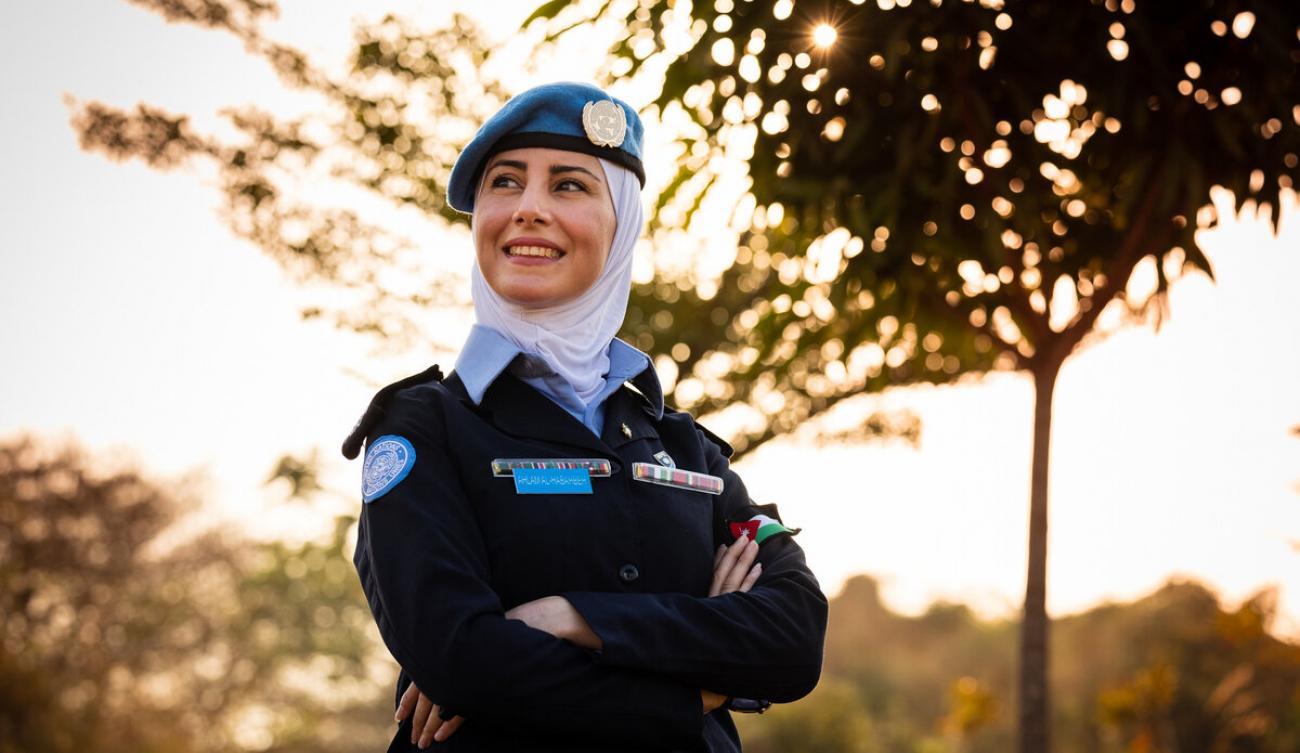
If the world is going to defeat COVID-19 and build back better, then it must also achieve a greater measure of gender equality. The two are tightly linked. That’s why, in response to the crisis, many countries are having more women in leadership as a key to achieving an equal future.
Below, meet women from Jordan, Sudan, Lebanon, and Somalia who are taking on traditionally male-dominated roles and making their countries safer and more prosperous.
Supporting survivors in South Sudan
“No profession is exclusive to either gender—what your brother can do, you can as well,” says Captain Ahlam Al-Habahbeh from Jordan.
Ahlam is a UNPOL officer with UNMISS. She and her team work with their counterparts from the South Sudan National Police Service to better deal with cases of sexual and gender-based violence. Women and young girls have been disproportionately affected by such violence and rape is often used as a weapon of war. Ahlam’s goal is to empower and educate local policing counterparts so that survivors of conflict-related sexual violence are supported in reporting such crimes officially so that perpetrators can be brought to justice.
“I see young girls across the world’s newest country wanting to wear a uniform when they grow up, be independent and make a difference,” says Ahlam. “You need to understand that while it’s a challenging career choice, it can be the most rewarding experience of your life.”
To read more about Ahlam, visit the full article published on UN in Jordan's website.
Building homes in Jordan
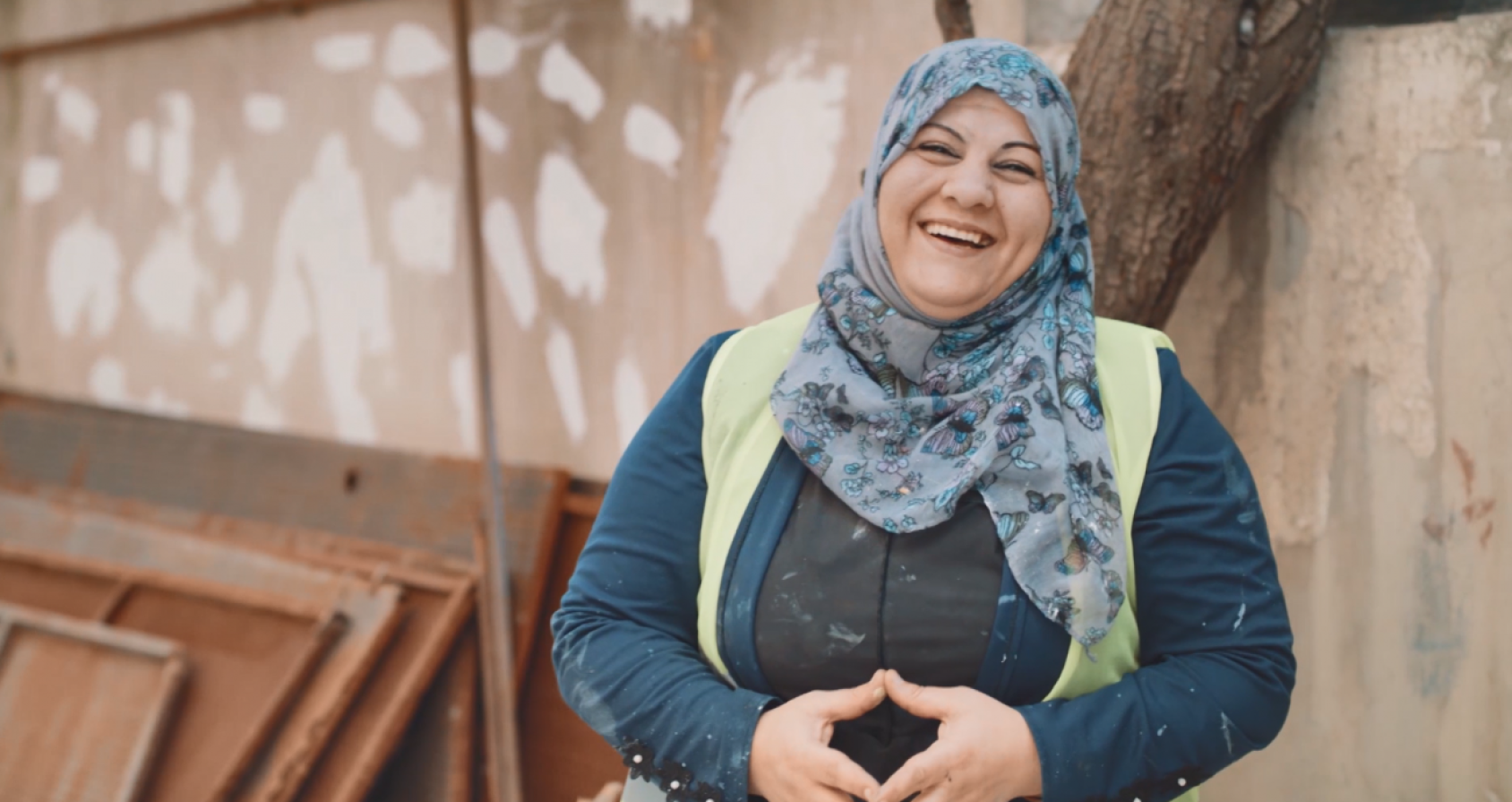
“Women can reach the highest ranks, they shouldn’t be ashamed of any kind of work, they should not let obstacles like society and stereotypes stand in their way,” says Warda, from Jordan.
Warda’s journey started when she decided to break gender stereotypes and challenge society by working as a carpenter to support her five children. She decided to turn her hobby of doing maintenance around the house into a career and realized that she could put her skills to use and generate an income.
After attending one of WFP’s rehabilitation trainings, which focused on home maintenance, painting, and carpentry, Warda knew she could change the lives of many people within her community as well by encouraging them to work with her.
To read more about Warda, visit the full article published on UN in Jordan's website.
Pursuing peace in Sudan
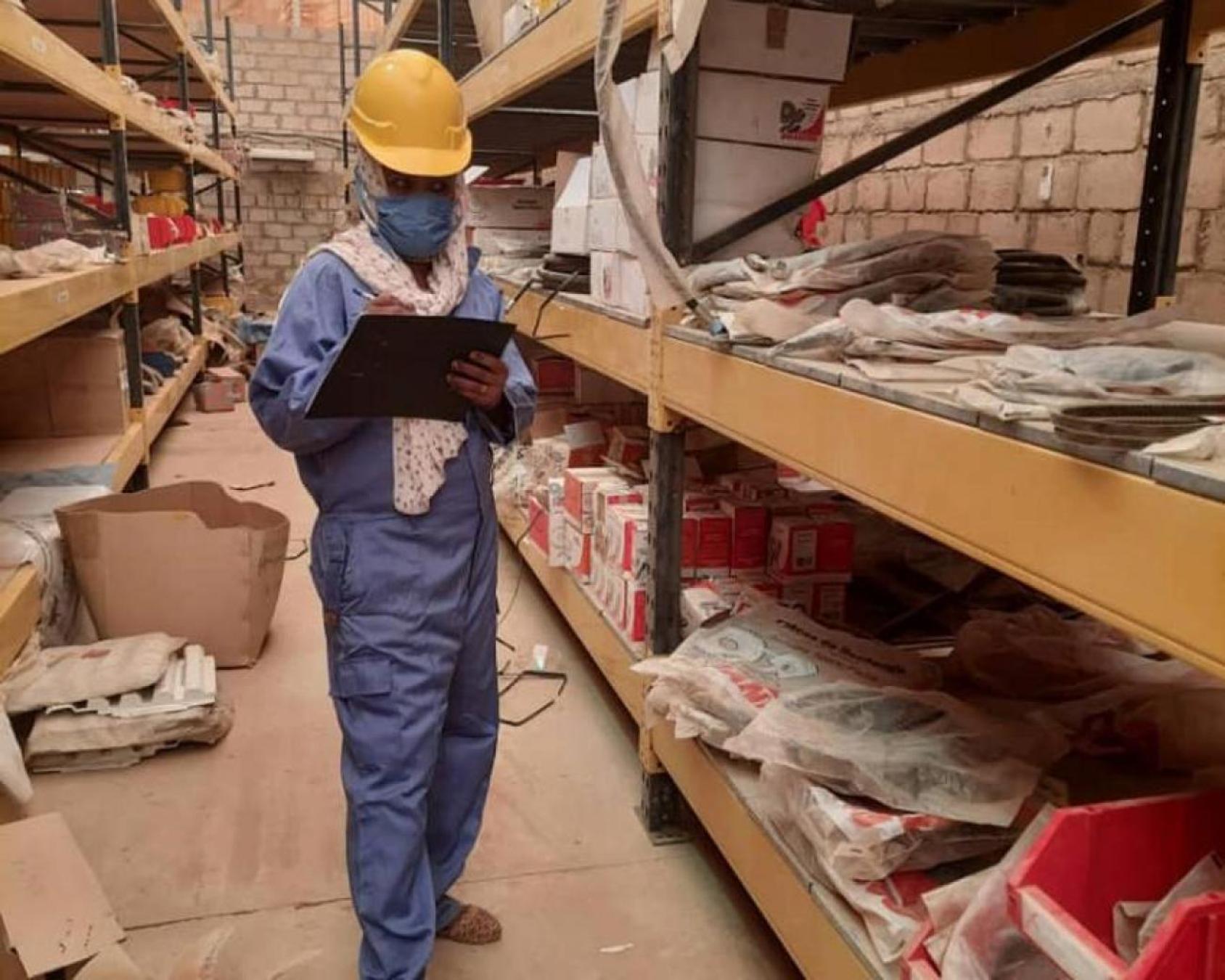
"I want young women to know that being a leader is not related to gender, race or religion. A person’s leadership ability should depend on their individual strengths and personality traits,” says Ekram Fator, UN Volunteer Warehouse Assistant with UNAMID, Sudan.
Ekram works in the transport warehouse where she supports the overall management of stock. By choosing to serve in such a role, traditionally seen to be more fit for men, Ekram is breaking social barriers and challenging gender stereotypes.
“Without women in leadership, women’s empowerment cannot be pushed forward,” says Ekram.
When asked how people can advance gender equality and women’s empowerment, she says, “Men can support by listening to women, advocating for their rights, and engaging with them.”
To read more about Ekram, visit the full article published on UN in Sudan's website.
Rejecting stereotypes in Lebanon
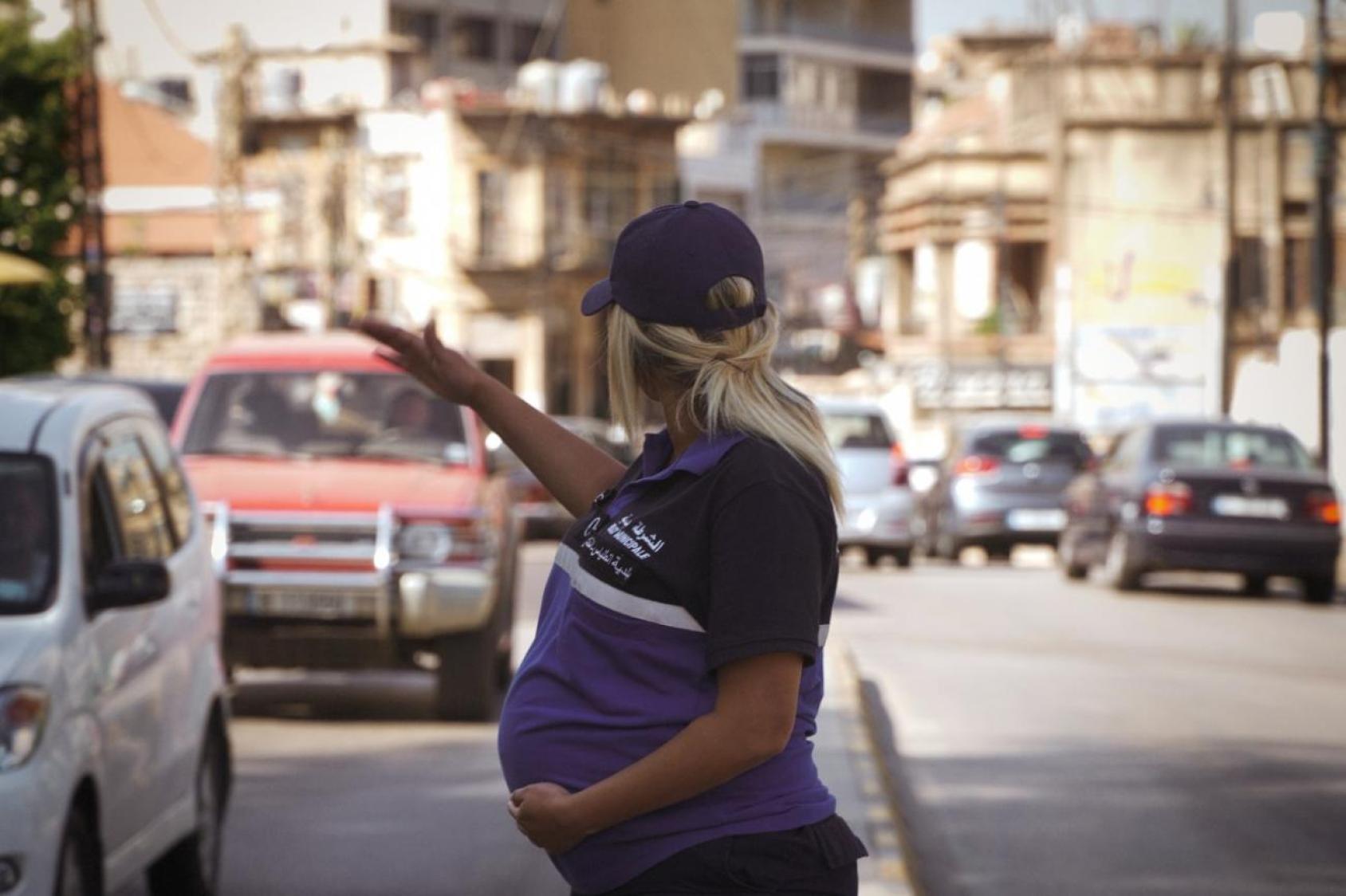
“It wasn’t always easy to be on the streets as a female agent. At first, people didn’t really accept me, especially men. I had to work out my own approach to the role,” explains Bushra, one of Antelias’ most active municipal police agents.
The municipality of Antelias is one of many across Lebanon partaking in the reform programme launched by UNDP with the aim of transforming the municipal police into a people-centered service.
At the core of this reform programme is the recruitment of female agents who, like Bushra, play an essential role in ensuring the security of the communities they serve.
“People call me brave — I don’t know, that’s not really for me to judge, but if I think about it, life has made me brave, and I will never quit. Nothing stops women from doing anything — even if they are pregnant, and even in the time of the coronavirus,” says Bushra.
To read more about Bushra, visit the full article published on UN in Lebanon's website.
Making art in Somalia
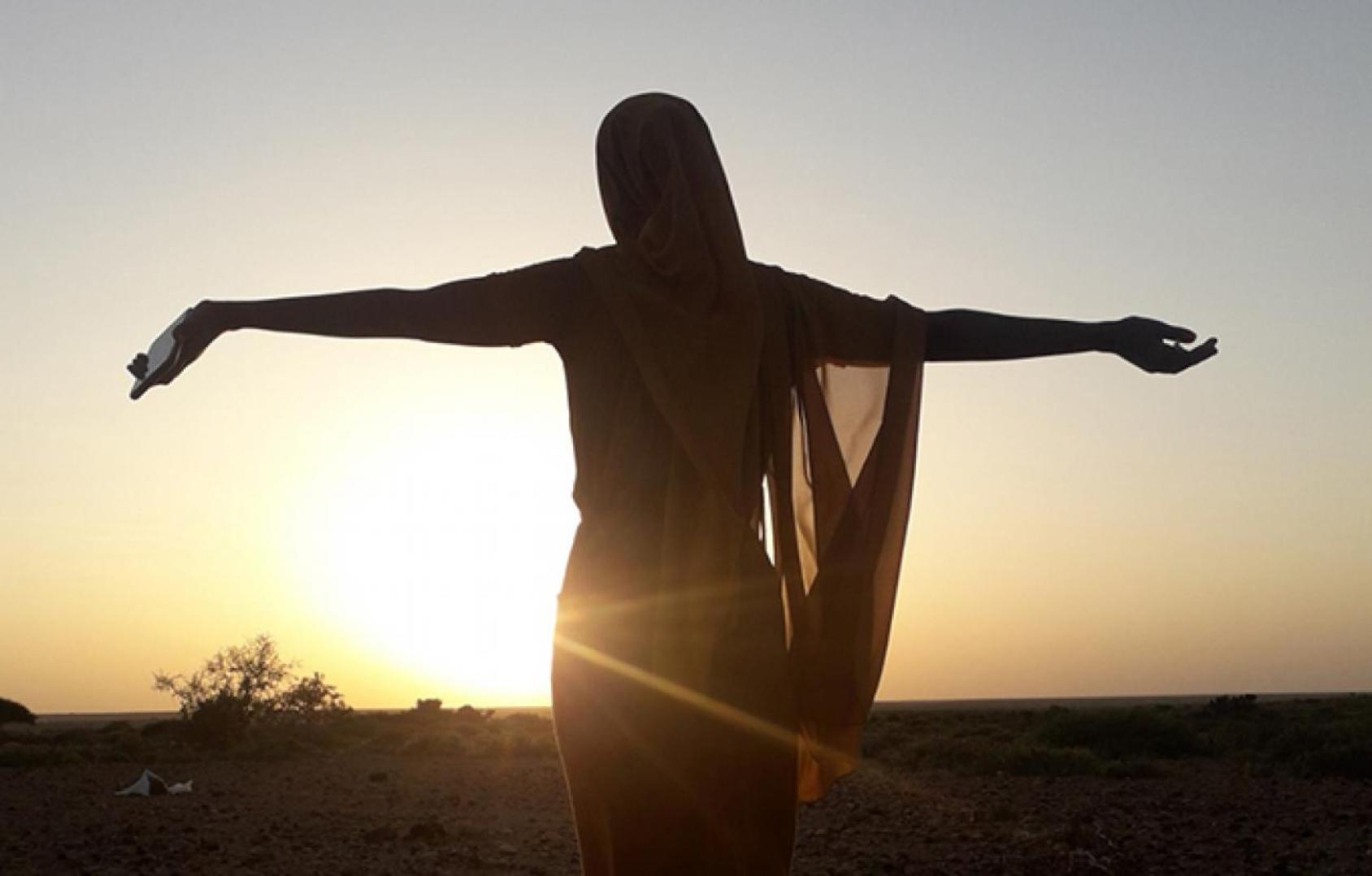
“Many Somali young girls are faced with a lot of challenges, early marriage, female genital mutilation, lack of education and many others. But you know? This does not stop them from pursuing their goals and dreams,” says ZamZam Abdigafar.
ZamZam, age 23, attended a body-mapping workshop organized and funded by UNFPA Somalia. She says the workshop has boosted her confidence. “I feel more relaxed as I am now able to express myself more and realizing the importance of sharing views and experiences.”
“I have decided that I will buy different painting colors and during my free time, I will start painting to express my thoughts. I also feel strong enough to speak for those people who cannot speak for themselves,” says ZamZam. “Where there is art, there is life.”
To read more about Zamzam, visit the full article published on UN in Somalia's website.
These profiles were originally published on UN country websites in Jordan, Sudan, Lebanon and Somalia. Compilation of stories produced with editorial support by Elie Baaklini, Development Coordination Office.
To learn more about the results of our work in this area and beyond, please read the latest UNSDG Chair Report on DCO.













